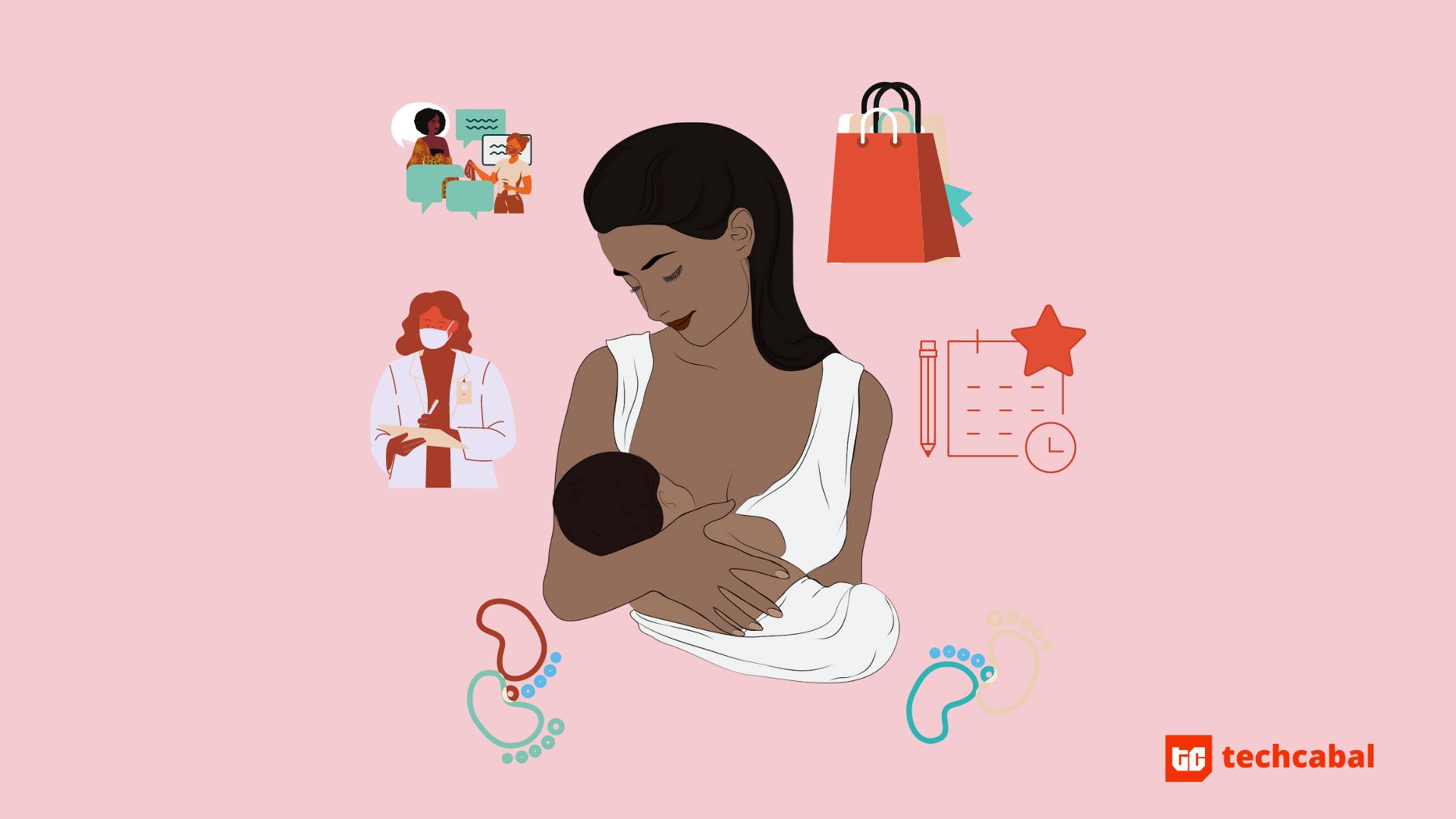Since the term was coined in 2016, femtech, a sub-sector in health technology dedicated to creating solutions that address female wellbeing continues to gain traction and attract VC funding globally. In Africa, however, the space is still very much in its budding phase. This segment is dedicated to telling stories of innovators, their solutions, the investors and challenges of the sector as it blooms in the continent.
Last month, Kenya-based maternal care and e-commerce platform MumsVillage announced a merger with BabyBliss Nigeria to form Bliss Group, a pan-African omnichannel e-commerce and community platform for parenting content and baby care products.
By 2024, the value of the baby care product market in the Middle East and Africa is expected to reach US$15 billion. The new entity, Bliss Group, will seek to tap into this market in Kenya and Nigeria and spread their tentacles to other parts of Africa in the coming months.
Prior to founding MumsVillage in 2015, Isis Nyong’o led African expansion for global companies like Google, Viacom and InMobi. Over time, it became apparent that technology solutions that centered women as their primary target audience were few or almost nonexistent.
“Nor were there many women in the product teams or the people making the decisions about what types of products were being developed and how they were being rolled out,” Nyong’o tells TechCabal.
Also preparing to have a baby around this time, she found there was not a lot of content around pregnancy and parenting that took local contexts of women in Kenya and other parts of the continent into account. Leading African expansion for these global brands had taught her the importance of contextualising content to present a brand or information in the manner that was relevant to individual audiences.
And so, while there was certainly no harm in seeking out or ingesting content from across the globe, understanding how to navigate constant power cuts when there is a stash of expressed milk in the freezer was information a Kenyan mother could not readily find online.
Although initially starting out as a content community, Nyong’o says there were three paths to follow when the idea for MumsVillage came: content, community and commerce.
“We decided to approach it through building a brand first through content and community and commerce was further on in the journey,” says Nyong’o,
While BabyBliss Nigeria, founded in 2017 by Ezinwanne Ajayi, launched as a multichannel e-commerce platform to help mothers source for quality baby products, its activities have been built on a community of over 150,000 mums across its platforms purchasing based on referrals and each other’s experiences.
Most baby care products available in the country are from global brands like Johnson & Johnson or Procter & Gamble who make a vast range of items from baby food to diapers and baby lotions/oils/soaps. It is not unusual to come across counterfeited variations of these products or low-quality locally made products branded with these names in order to sell.
BabyBliss Nigeria was launched to provide new mums easy access to quality baby products including carriers, clothing items and furniture for nurseries.
Bliss Group combines both MumsVillage and BabyBliss Nigeria’s strong communities and e-commerce efforts into a new entity poised to build a pan African digital village of quality content, support and products within which babies can be well raised. As the African adage says, it takes a village to raise a child.
Discussions about the merger began at the end of 2019 and took around 6 months to complete. Prior to this time, there was already an existing relationship between the companies as they both worked in identical sectors operating in different countries.
“It was very attractive to become a pan African business and it was always part of our goals to do that,” says, Jika Nwobi, CEO, BabyBliss Nigeria.
“It feels like we have been working together forever. It’s such a great team and the synergies are great.”
Both companies shared similar long term vision, had similar team/organisational structure as well as customer profiles and prior to the pandemic lockdowns, both teams spent time cross-interfering and acclimatising with each other.
Bliss Group, the entity arising from the merger, is now a holding company with MumsVillage in Kenya and BabyBliss in Nigeria as its subsidiaries.
Nyong’o says while she would have loved both teams to have spent more time in-person as operational restructuring happened, most of the changes in the organisation are still ongoing and teams are very focused on bigger, long-terms goals which is to continue to expand capacity and reach of the businesses both in Kenya and Nigeria, and into other locations on the continent.
Millicent Muigai, CEO, MumsVillage Kenya says Bliss Group is now thinking of ways to drive its content across both locations as well as what aspects of both businesses will need to extend to users in Kenya and Nigeria respectively. For instance, one of BabyBliss Nigeria’s channels was a mobile application where mums could shop and connect from and the team will now consider how that is developed or works for mums in Kenya. Ultimately, mums in both countries will be able to access a larger community, quality content and more variety of products through even more channels.
“If you want users to buy you have to find them where they are, so it is important that we are available across various channels,” says Muigai.
Nyong’o says it was important to eschew the idea that you had to use all your platforms to drive traffic to one central channel because studying the purchasing patterns and consumption habits of the mums on the platforms had shown that a main website could be seen as very formal especially for mums whose first contact with the digital space may have been a social media platform like Facebook.
Since supply chains have come under the Bliss Group holding company, price effects on purchasing will also mean that mums are going to be able to purchase items at lower prices both in Kenya and Nigeria. There will also be introduction of a more robust inventory to Kenyan users. And ultimately, production of baby care products that are even more cost effective than those being sourced from international brands at the moment.
“Whatever partnerships we might strike, we are able to do something at a bigger scale across two key markets across the continent,” Nyong’o adds.
Technology products specifically targeting female users are on the rise. Referred to as femtech, these apps, softwares and devices are specific to the healthcare needs of women and the global value of this market is expected to cross US$48.5 billion by 2025.
When she was founding MumsVillage and made the decision to focus on women solely, Nyong’o says it was difficult to really explain the biases that she was trying to tackle.
“I think I’ve faced less resistance to it over time,” she says.
One of the concerns femtech founders often encounter is the perception that the target audience is niche even though women make up nearly half of the population and in Africa, are usually in charge of family spending especially when it comes to health and family welfare.
Nyong’o however notes that when considered in terms of the digital population, women are still lagging behind and rightfully so. The proportion of women using the internet is a quarter less than the proportion of men using the internet in Africa.
“I do think we’ll see more femtech products and solutions,” she says.





















